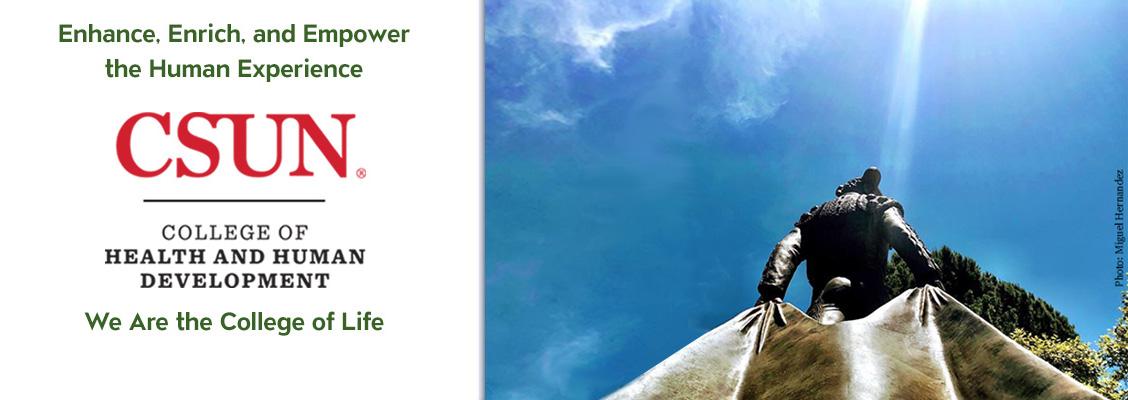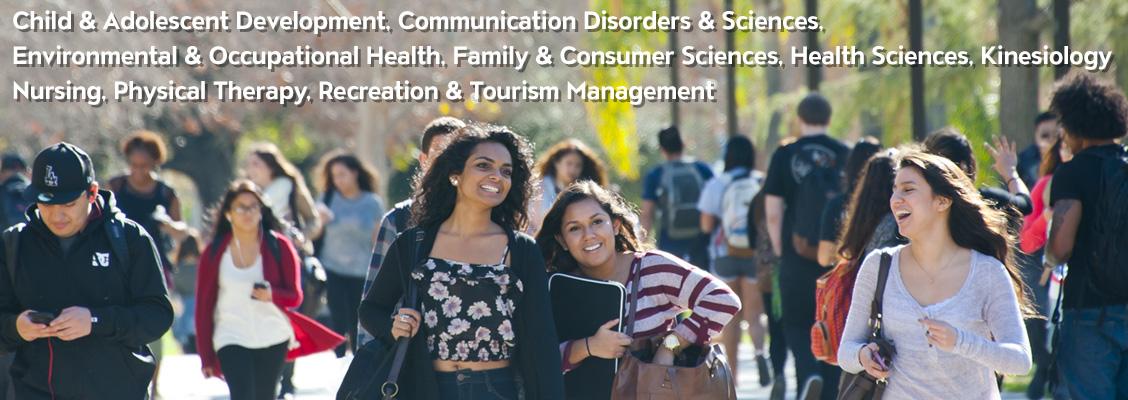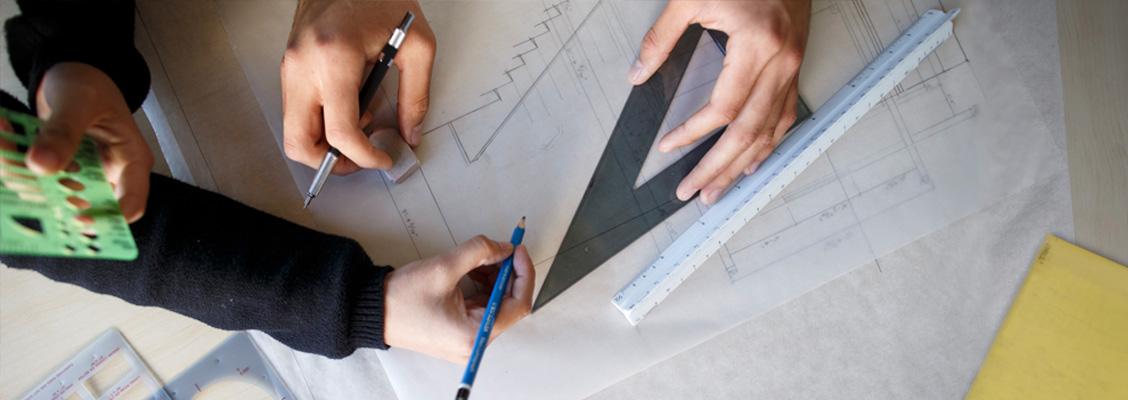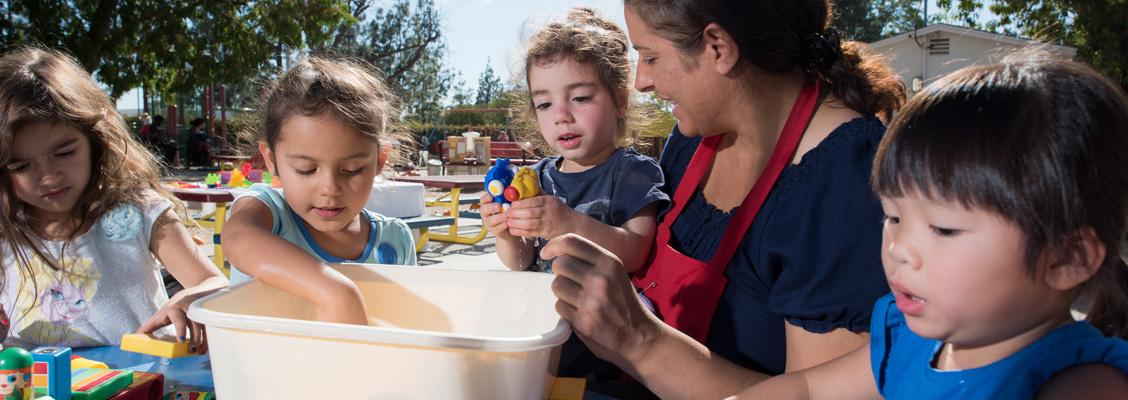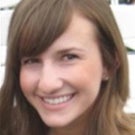 Aleksandra Milosevic is a graduate student in Speech Pathology at CSUN and one of four recipients of the EBS (Educational Based Services) Healthcare Scholarship. A community partner with CSUN, EBS is the largest provider of specialized health care services to the pediatric population. Aleksandra always wanted to work with children, and more recently realized speech pathology was the way she could help the most, so when she found out about the EBS Scholarship, with two years employment as part of the contract, she applied quickly. We spent five minutes with Aleksandra to learn more about her experience at CSUN and how the EBS scholarship is helping shape her future. She plans to graduate with her Master’s Degree this spring.
Aleksandra Milosevic is a graduate student in Speech Pathology at CSUN and one of four recipients of the EBS (Educational Based Services) Healthcare Scholarship. A community partner with CSUN, EBS is the largest provider of specialized health care services to the pediatric population. Aleksandra always wanted to work with children, and more recently realized speech pathology was the way she could help the most, so when she found out about the EBS Scholarship, with two years employment as part of the contract, she applied quickly. We spent five minutes with Aleksandra to learn more about her experience at CSUN and how the EBS scholarship is helping shape her future. She plans to graduate with her Master’s Degree this spring.
Q: What was your undergraduate major?
A: I received a Bachelor’s Degree in Communication Disorders and Sciences with an emphasis in Speech Pathology here at CSUN.
Q: How did you find out about EBS scholarship program and how has your life changed since you got it?
A: I came to class one day and saw posters all around the building in Monterey Hall. Amanda Miller, the social skills clinic supervisor in the Language Speech and Hearing Center, had set up a table in the lobby where students gather before class and she was telling everyone about the scholarship. I knew her because she was my supervisor when I was a student clinician in her in clinic at the Language Speech and Hearing Center. I asked about EBS and what I needed to do to apply. I also did some internet research and saw really great reviews from people who had actually worked for EBS. Everything about it really hit home for me-- and I have always wanted to work in pediatrics, and so this was perfect.
I applied and was excited and nervous about whether I’d get it. Amanda explained there were so many people reading applications and participating in the decision making process.
After a long wait I finally found out I got it! The same emotions came back that I had getting into grad school. I was really overwhelmed and I was really really excited–only four of us got picked from those who applied and it was such a great honor to know that my dream of working in pediatrics was really coming true and that after I graduated I could go to work in my field. They place you with schools, private practices or hospitals that deal primarily with pediatric populations. I knew it would be perfect--the scholarship comes with a contract that includes two years of full time employment after graduation, and they have mentors to guide students through the educational and professional phases.
Q: What do you think will happen with your career and what opportunities have been made possible for you because of the EBS scholarship?
A: That's a great question! I feel like being contracted through EBS is going to provide me with some great opportunities in the future and already has! Speaking with you is giving me the chance to spread the word about our wonderful field of Speech Pathology. I will also get the opportunity, along with the three other recipients of the scholarship, to participate in presentations and/or training within a school about a given topic to spread awareness. There is tremendous value in the guidance and mentorship they provide. They work with you to decide on an area and facility to work in. They are able to connect you with fellow Speech-Language Pathologists and other professionals to “pick their brains” about tough cases or therapy ideas, which will be very helpful as a new clinician! Their team, who continually calls me to touch base, has really created a sense of support and made me feel like I was part of the EBS family and I’m not even done yet! I'm just so happy that I will be able to work with children in a field that I find so gratifying.
Q: What is it that appeals to you about pediatrics? Is there experience in your past that pointed you in that direction?
A: It’s just always been my dream. Ever since I was in elementary or middle school I’ve always felt this connection with kids, I’d always get a really great response from them. I always knew I wanted to work with kids, and after entering this field and seeing how there are so many children diagnosed with various disorders in which they are not able to communicate effectively. Not to sound cliché, but I just knew this was my calling. Sometimes I would go into a session, and see this tiny child, who had this particular look on their face or gleam in their eye and I would just know they wanted my help. I love seeing those milestones with the little ones, and being there to guide them through maybe saying their first word, having them make the “k” sound or having a child meaningfully communicate with a device or through body movement are all things that are worth celebrating! For me, it’s seeing them making those small and big leaps toward their goals; it’s the most rewarding feeling in the world. My heart just melts every single time I get the chance to work with a kid and it solidifies the fact that that this is the population I want to work with.
Q: As a speech pathologist, I know one of the disorders you work with is Autism Spectrum Disorder, what other kinds of conditions to you address?
We help children with a variety of disorders and different types of delays. Our field is amazing because we have the chance to work with not only children with Autism Spectrum Disorder, but also with children and adults with fluency disorders, neurologically based communication disorders, speech and language delays, voice disorders, and much more. I’ve personally worked with Autism Spectrum Disorder in the CSUN social skills clinic with Amanda [Miller]. I’ve worked with children who are delayed in either or both receptive and expressive skills, fluency disorders, and speech disorders or delays. Often times, children can go through a period of phonological processes where they’re saying “wabbit” for “rabbit”, “tar” for “star.” And sometimes a child needs help getting through those stages, but there are also chronological processes, perhaps cases where there is a developmental delay.
Most recently, during my student teaching experience, I worked at a special education school for individuals who present with severely handicapping communication disorders like low functioning autism, Down Syndrome, different types of chromosomal disorders, intellectual disabilities and traumatic brain injury.
Q: I understand an externship is also part of your graduate program. Is this with EBS?
A: No, it is not apart of EBS, it’s a graduate course that I am taking to complete client hours. It’s similar to student teaching but instead of a school site an externship can be with adults or children in a hospital, skilled nursing facility or a type of private clinic.
Q: And where are you doing your externship?
A: I’m doing my externship this semester at Pasadena Child Development Associates.
Q: What age range of children do you find yourself working with most?
A: With EBS the age range for pediatrics that I will be working with is birth to 21. I’ve worked with children from 2 up to 17 years old during my experiences at CSUN. Also, something to keep in mind when working with children is depending on what type of population you are working with, and the severity of their disorder, I found myself modifying my treatment session to not necessarily match their chronological age, but more so matching what their cognitive age and capacity was.
Q: Have you had any experiences that “made the textbook come to life” for you?
A: One particularly memorable experience during my student teaching was with a child who had been diagnosed with Autism Spectrum Disorder and exhibited echolalia; where the client essentially gives a parrot like repeat of whatever you say. At first I was thrown off because I’ve only read about it, so all I ever really knew was a definition.
In my mind I wasn’t sure how to cross that barrier with him, but the training kicked in. I wanted him to use his own communication and get a chance to say whatever he wanted to express. For example, we’d say something like, “What do you want to play today? and he’d say it back just like we said it, “What do you want to play today?” We’d say, “Do you want to play a cooking game?” And again he’d repeat, “Do you want to play a cooking game?”
We had to come up with a tactic to help him to overcome the barrier, not only with us in our sessions but to take into his life—to tell his mom about school, ask the teacher if he could go to the bathroom--very simple things like that. So we came up with a type of low tech AAC [Augmentative and Alternative Communication] strategy. We wrote and used simple symbols taken from Boardmaker and used it as a type of pointing board where he learned to point to certain pictures to formulate a sentence. We had a picture of a boy that was representative of “I” and a picture of a hand pointing to blocks which represented “want” and then we had nine icons representing certain games or choices. Over the semester, session by session, with practice and cues, he got the sense of what we were doing, and then one day he could, for the first time, tell someone what he really wanted to play that day!
I got emotional because until this point, he had just been repeating everything I had said and then suddenly—as if out of nowhere--he’s pointing out this sentence by himself and it was amazing! I couldn’t believe my eyes! I could say, “Do you want to play this game?” And he would be able to tell us yes! Or I’d confirm and provide feedback to him to encourage his communication by saying “I love the way you used your board to tell me what you wanted to play today!” This was a turning point. He was able to communicate with us meaningfully! At that point I really felt that he understood the cause and effect of his actions. For the most part, he carried that over in to each and every session thereafter.
Q: With a disorder like echolalia, is it that the child doesn’t really understand what communication is? Does he just know there’s a sound to make that appears to have some kind of meaning so he just repeats what he hears?
A: Sort of. With autism there’s a huge pragmatic component; for this case in particular, I felt that socially he didn’t really know what his role is as a communication partner was so there was a disconnect. Since he wasn’t really sure what his responsibility was, he would just repeat whatever I said because he knew he was supposed to say something and behave as that meaningful communication partner, but didn’t have the appropriate tools to tell me.
Q: So you’re helping him make cognitive leap between mystery and epiphany?
A: Exactly! Before it was basically, “I know I’m supposed to say something but I really don’t know what to say.” So he’d repeat the statement, question, or comment with exact imitation. Echolalia is a very long process to get through but what some might think as such a simple step was actually such a giant step! Seeing him request his favorite activity to play on the iPad was great, but more than that, I just saw the happiness that came along with getting to play what he truly wanted. Experiences like this one are so gratifying, and all the disorders and diagnoses that I’ve been working with throughout student teaching and my clinical experience just, again, solidify the fact that that this is the population I want to work with and has taught me so much about our field.
EBS Healthcare is a community partner with CSUN Health and Human Development.

